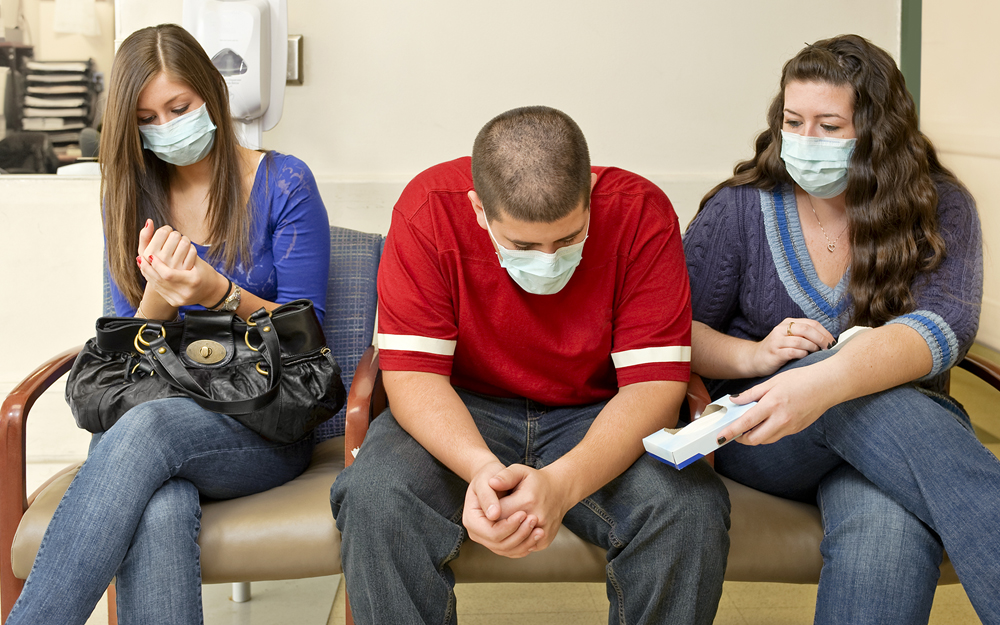Flu: When to Go to the ER
Date
October 28, 2019
Credits

Date
October 28, 2019
Credits
Medical providers featured in this article
In Brief
{{cta-block}}
How do you know when your flu symptoms warrant a trip to the ER?
"It's a tough call," says Dr. Joel Geiderman, co-chair of Emergency Medicine at Cedars-Sinai.
"My own mother got sick with the flu, developed severe complications, and died of it at age 76. In my opinion, her death was preventable."
{{providers}}
Flu basics
The flu isn't usually an emergency, especially among people who are young and otherwise healthy. But for patients over 65, pregnant women, and people who are battling a chronic condition or are immunocompromised, the flu can be deadly.
"People in these high-risk categories who experience severe flu symptoms like fever, chills, and body aches should not hesitate to go to the ER if there are no other choices," says Dr. Geiderman.
Early treatment may help these patients sidestep complications, such as bacterial pneumonia, superinfections, and even death.
Otherwise healthy people who smoke or vape also have a significantly higher risk of developing flu-related complications and should see a physician if they are suffering from flu-like symptoms.
"The general advice for otherwise healthy people is to take over-the-counter medications to manage your symptoms, stay in bed, and drink plenty of fluids."
When to go to the doctor for flu symptoms
If you have the flu, antiviral medications may be an option if you visit your doctor within 48 hours. However, studies show these drugs only shorten the duration of illness by one day or less and they may come with serious side effects.
"Rather than visiting a doctor or urgent care center to get a prescription, the general advice for otherwise healthy people is to take over-the-counter medications to manage your symptoms, stay in bed, and drink plenty of fluids," says Dr. Sam Torbati, co-chair of Emergency Medicine at Cedars-Sinai.
When to go to the ER for flu symptoms
Adults who have the following symptoms, even if they don't fall into a high-risk category, should go to the ER:
It may be more challenging to pinpoint the flu in infants and children, especially if they're not yet talking or walking. Watch for these emergency symptoms:
If you don’t have the symptoms listed above and aren’t in a high-risk group, but still want to see a doctor, an urgent care center may be a better option.
Prevention is the best medicine
The best defense against the flu? Be proactive with these 3 strategies:
- Get vaccinated at the start of flu season. The single best thing you can do to prevent the flu is to get a flu shot.
- Be vigilant about handwashing. Wash your hands with soap and water, scrubbing the front and back of your hands as well as underneath the nails. A standard washing regimen should take 20-30 seconds, about as long as it takes to sing "Happy Birthday." No soap or water? Use hand sanitizer until you can get to a sink.
- Stay home. If you do get sick, stay away from people for at least 24 hours after your fever subsides and drink plenty of fluids. The flu is usually contagious for about a week after the onset of symptoms. You might also consider wearing a respiratory mask, especially on airplanes or in doctors’ offices or other public places.
If you think you're suffering from the flu, your symptoms aren't improving, and you aren’t severely ill or in a high-risk group, your first stop should be your primary care doctor or an urgent care center.
Frequently Asked Questions
What are common symptoms of the flu?
Flu symptoms include fever, cough, chills, sore throat, body aches and fatigue.
Who is at higher risk for flu complications?
High-risk individuals include older adults, pregnant women, people who are immunocompromised and those with chronic health conditions.
When should I go to the emergency room for flu symptoms?
Adults should go to the ER if they are at high risk for flu complications or they experience difficulty breathing or shortness of breath, pain or pressure in the chest or abdomen, dizziness, confusion, severe or persistent vomiting, or flu-like symptoms that get better and then return.







